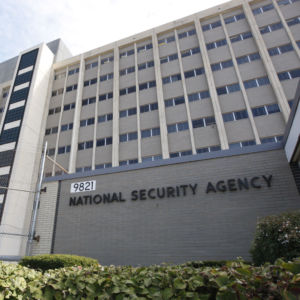Congress is still waiting for an intelligence community estimate of the number of American communications swept up in widespread surveillance programs authorized by law due to expire this year.
Lawmakers blasted the intelligence community Wednesday after a classified briefing from members of the National Security Agency, FBI, Office of the Director of National Intelligence and others. Representatives again failed to respond to a year-old request for an estimate of the number of American communications caught up in electronic surveillance programs.
Representatives have asked repeatedly for the information ahead of Congress’ reauthorization of FISA (Foreign Intelligence Surveillance Act) Amendments Act Section 702. The law legalizes broad electronic surveillance programs like Prism, revealed by NSA leaker Edward Snowden in 2013. Section 702 expires Dec. 31.
Michigan Democrat Rep. John Conyers said the intelligence community “has not so much as responded” to another December request for the estimate. He added lawmakers “will not simply take the government’s word on the size of the so-called incidental collection.”
Section 702 authorizes NSA’s “upstream” surveillance programs — when the signals intelligence agency taps the physical infrastructure of the internet, such as undersea fiber cables, to surveil the content of foreign communications including emails, instant messages, etc. as they exit and enter the U.S.
It also allows the agency to submit selectors to U.S.-based communications providers, like e-mail addresses, who then provide the agency with any communications relevant to those selectors.
The programs essentially allow NSA to “incidentally” sweep up unrelated data belonging to Americans in communication with foreigners. Privacy advocates like Elizabeth Goitein, co-director of the Liberty and National Security Program at NYU Law’s Brennan Center for Justice, say such incidental collection likely amounts to millions or tens of millions of warrantless interceptions.
“I don’t mean to imply that this trust was misplaced,” Goitein told the House Judiciary Committee during the unclassified half of Wednesday’s briefing. “In fact, we’ve seen essentially no evidence of intentional misuse. But what we have seen is mission creep, so that a law designed to protect against foreign threats to the United States has become a major source of warrantless access to Americans’ data and a tool for ordinary, domestic law enforcement.”
NSA can share raw data it collects absent a warrant with CIA and FBI. All three can hold onto data for five years, but encrypted communications, those “reasonably believed to contain secret meaning,” and “any U.S. person information that has foreign intelligence value or is evidence of a crime,” can be kept indefinitely. None estimate how many Americans are swept up annually in what privacy advocates have dubbed “back door searches.”
Goitein said that data can be used to prosecute Americans for crimes unrelated to the original search. Legal requirements for secrecy and national security allow prosecutors in some instances not to reveal how such information was gathered, making it difficult to surmise if it’s happened already.
She and others at Wednesday’s hearing including California Democrat Rep. Ted Lieu say that’s a clear Fourth Amendment violation, and Congress should rewrite the law with reforms instead of a blanket reauthorization. Jeff Kosseff, a professor at the U.S. Naval Academy, argued “national security” gives the intelligence community exception to the Fourth Amendment’s warrant requirement.
An anonymous White House official told Reuters Wednesday the Trump administration supports renewal without reforms.
“We support the clean reauthorization and the administration believes it’s necessary to protect the security of the nation,” the official said.

